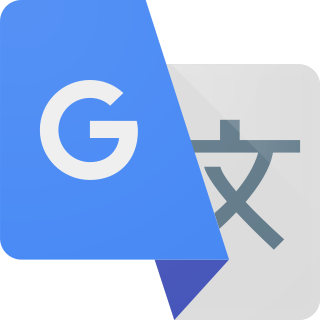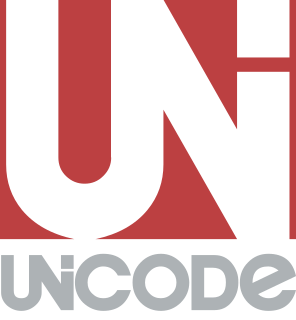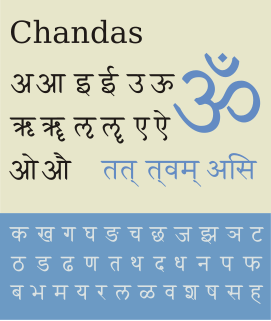
Romanization or romanisation, in linguistics, is the conversion of writing from a different writing system to the Roman (Latin) script, or a system for doing so. Methods of romanization include transliteration, for representing written text, and transcription, for representing the spoken word, and combinations of both. Transcription methods can be subdivided into phonemic transcription, which records the phonemes or units of semantic meaning in speech, and more strict phonetic transcription, which records speech sounds with precision.
There are several methods of transliteration from Devanāgarī to the Roman script which share similarities, although no single system of transliteration has emerged as the standard. This process has been termed Romanagari, a portmanteau of the words Roman and Devanagari.. The term may also be used for other languages that use Devanagari as the standard writing script, such as Marathi, Nepali or Sanskrit.
The National Library at Kolkata romanisation transliteration is the most widely used scheme in dictionaries and grammars of Indic languages. This transliteration scheme is also known as (American) Library of Congress and is nearly identical to one of the possible ISO 15919 variants. The scheme is an extension of the IAST scheme that is used for transliteration of Sanskrit.
The International Alphabet of Sanskrit Transliteration (IAST) is a transliteration scheme that allows the lossless romanization of Indic scripts as employed by Sanskrit and related Indic languages. It is based on a scheme that emerged during the nineteenth century from suggestions by Charles Trevelyan, William Jones, Monier Monier-Williams and other scholars, and formalised by the Transliteration Committee of the Geneva Oriental Congress, in September 1894. IAST makes it possible for the reader to read the Indic text unambiguously, exactly as if it were in the original Indic script. It is this faithfulness to the original scripts that accounts for its continuing popularity amongst scholars.
The Harvard-Kyoto Convention is a system for transliterating Sanskrit and other languages that use the Devanāgarī script into ASCII. It is predominantly used informally in e-mail, and for electronic texts.
ISO 15919 "Transliteration of Devanagari and related Indic scripts into Latin characters" is one of a series of international standards for romanization by the International Organization for Standardization. It was published in 2001 and uses diacritics to map the much larger set of consonants and vowels in Brahmic scripts to the Latin script.
The "Indian languages TRANSliteration" (ITRANS) is an ASCII transliteration scheme for Indic scripts, particularly for Devanagari script.
The Arabic chat alphabet, also known as Arabish, Araby, Arabizi, Mu'arrab (معرب), and Franco-Arabic (عرنسية), is an alphabet used to communicate in Arabic over the Internet or for sending messages via cellular phones. It is a character encoding of Arabic to the Latin script and the Western Arabic numerals. It differs from more formal and academic Arabic transliteration systems, as it avoids diacritics by freely using digits and multigraphs for letters that do not exist in the basic Latin script (ASCII).

Google Translate is a free multilingual machine translation service developed by Google, to translate text. It offers a website interface, mobile apps for Android and iOS, and an API that helps developers build browser extensions and software applications. Google Translate supports over 100 languages at various levels and as of May 2017, serves over 500 million people daily.
Indic Computing means "computing in Indic" i.e. Indian Scripts and Languages. It involves developing software in Indic Scripts/languages, Input methods, Localization of computer applications, web development, Database Management, Spell checkers, Speech to Text and Text to Speech applications and OCR in Indian languages.
Google IME is a set of typing tools by Google for 22 languages, including Amharic, Arabic, Bengali, Chinese, Greek, Gujarati, Hindi, Japanese, Kannada, Malayalam, Marathi, Nepali, Persian, Punjabi, Russian, Sanskrit, Serbian, Tamil, Telugu, Tigrinya, and Urdu. It is a virtual keyboard that allows users to type in their local language text directly in any application without the hassle of copying and pasting.
Google transliteration is a transliteration typing service for Hindi and other languages.
Indian blogosphere is the online predominantly community of Indian weblogs that is part of the larger blogosphere.

Dr Gurpreet Singh Lehal is a professor in the Computer Science Department, Punjabi University, Patiala and Director of the Advanced Centre for Technical Development of Punjabi Language Literature and Culture. He is noted for his work in the application of computer technology in the use of the Punjabi language both in the Gurmukhi and Shahmukhi script.

Azhagi is a freeware transliteration tool used to convert the words to regional languages like Tamil, Hindi and some other Indian languages which The Hindu named as among the transliteration tools that "stand out" in 2002. Since 2000, Azhagi has provided support to Tamil transliteration; later this was expanded to nearly 13 Indian Languages.

Yandex.Translate is a web service provided by Yandex, intended for the translation of text or web pages into another language.
The Velthuis system of transliteration is an ASCII transliteration scheme for the Sanskrit language from and to the Devanagari script. It was developed by Frans Velthuis, a scholar living in Groningen, Netherlands, who created a popular, high-quality software package in Latex for typesetting Devanāgarī. It is based on using the ISO 646 repertoire to represent mnemonically the accents used in standard scholarly transliteration. It does not use diacritics as compared to IAST. It does not use capital letters as compared to Harvard-Kyoto or ITRANS schemes.







